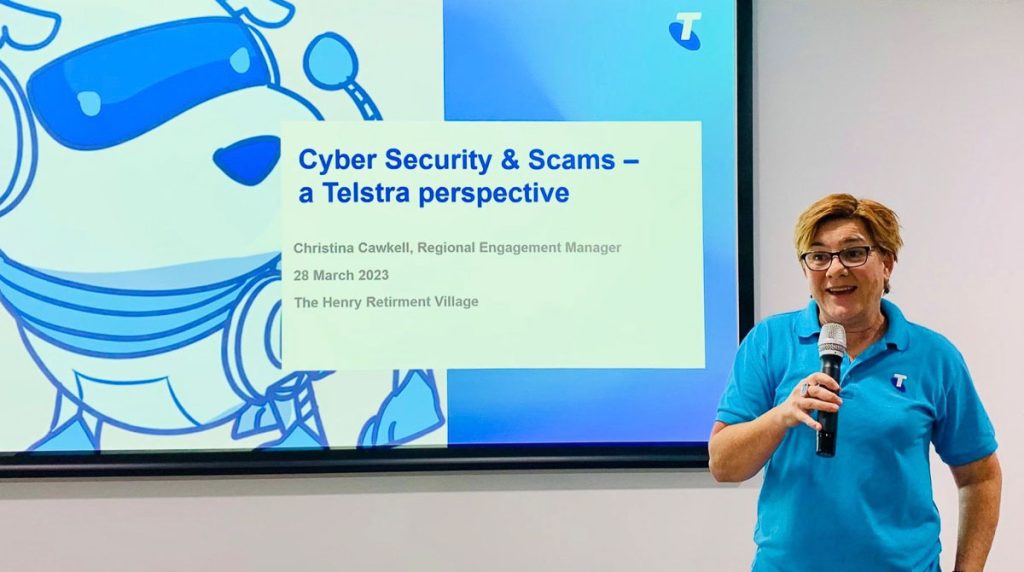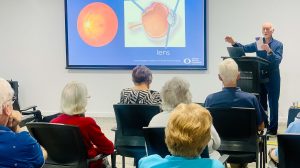Presentation on Cyber Security and Scams
Last week, The Henry welcomed Christina Cakwell, the Regional Engagement Manager of Telstra, to keep our residents on their toes about Cyber Security and Scams…
It was a very informative and knowledgeable session! Here is a little summary of what we learned:
1. Don’t reply to any emails or open any links that you are unsure about. If you accidentally click on a link before verifying it, don’t enter any information onto the website.
2. Pay close attention to the sender’s email address and any links in the email that don’t look legitimate. It’s important to know the address can still be fake on some occasions, so make sure you double-check another way too.
3. If you suspect an email is a phishing email and it contains information like an account number, cross-check whether the details correspond with details on a previous official email or with MyTelstra for Telstra customers.
4. Be suspicious of unaddressed or generically addressed emails.
5. Finally, listen to your gut. If something looks wrong or feels wrong – like typing mistakes across the text, colours that don’t seem quite right or an unexpected request for information – double and triple check it.
What to do if you have been scammed:
✔️ Call Telstra 13 2200 – say ‘fraud’ or message Telstra and write ‘fraud’ to be referred to their specialist fraud team
✔️ Report a scam to the ACCC – Report a scam | Scam-watch. Contact your financial institution if you have sent money or shared your banking details with a scammer
✔️ Contact people you know – you should warn your friends and family about scams
✔️ Recover your stolen identity – contact IDCARE – a free government-funded service that will work with you to develop a specific response plan
✔️ Apply for a Commonwealth Victims’ Certificate – this can help re-establish your credentials
✔️ Change your online passwords
✔️ Contact your local consumer protection agency – Fair Trading
✔️ Contact a counselling or support service – e.g. your local GP or Lifeline on 13 11 14.


